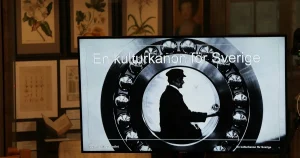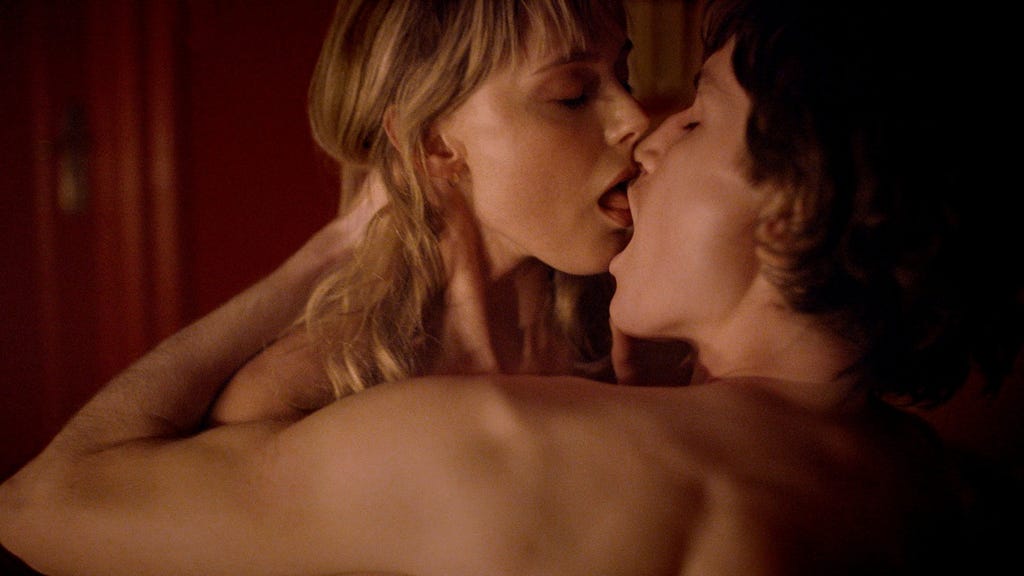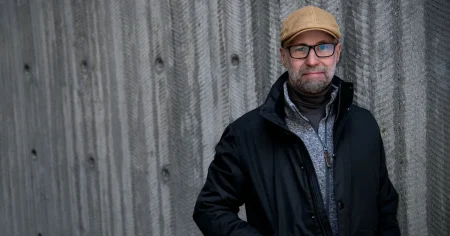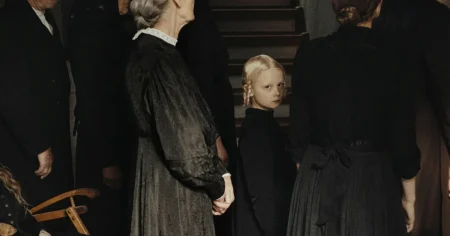Tomas Alfredson’s reimagining of Ingmar Bergman’s classic tale of infidelity, ”Faithless,” surpasses Liv Ullmann’s 2000 film adaptation, setting a new standard for emotional depth and narrative complexity. Alfredson’s ”Faithless” transforms the original story into a captivating six-part miniseries, allowing ample time for intricate character development and a nuanced exploration of the psychological repercussions of betrayal. While Ullmann’s film offered a compelling interpretation, Alfredson elevates the narrative with a contemporary lens, examining the timeless themes of love, desire, and the enduring power of guilt within a modern context. He masterfully weaves together the various narrative threads, creating a rich tapestry of interconnected lives where every action has profound and lasting consequences. This updated version resonates with contemporary audiences, exploring the complexities of relationships in a world grappling with modern anxieties and social pressures.
At the heart of Alfredson’s ”Faithless” lies the tumultuous affair between Marianne, a renowned actress portrayed by Frida Gustavsson, and David, a younger director played by Gustav Lindh. Their clandestine passion ignites a chain reaction of devastating consequences that ripple through their lives and the lives of those around them. The series meticulously unravels the intricate web of deceit, showcasing the gradual erosion of trust and the corrosive nature of guilt. Alfredson’s direction masterfully captures the subtle shifts in emotion, the unspoken tensions, and the quiet moments of despair that characterize the unraveling of these characters’ lives. The performances are nothing short of breathtaking, with Gustavsson and Lindh embodying the raw vulnerability and conflicted emotions of two individuals consumed by a forbidden love.
Unlike Ullmann’s singular perspective, Alfredson’s series offers a multifaceted exploration of the story, delving deeper into the motivations and vulnerabilities of each character. The supporting characters, including Marianne’s husband, her daughter, and David’s partner, are not merely peripheral figures but fully realized individuals grappling with their own internal struggles. The series delves into the intricate dynamics of these relationships, exploring the collateral damage of infidelity and the complex web of emotional entanglement that binds these individuals together. This broader perspective enriches the narrative, providing a more comprehensive understanding of the human cost of betrayal and the ripple effect it has on entire families.
Alfredson’s ”Faithless” transcends the confines of a simple love triangle, exploring broader themes of societal expectations, the pressures of fame, and the fragility of human connection. Marianne’s public persona as a successful actress contrasts sharply with the inner turmoil she experiences as her personal life unravels. The series examines the burden of maintaining a public image while grappling with private demons. David, an ambitious director, wrestles with his own insecurities and the allure of forbidden desire. The series doesn’t shy away from the complexities of these characters, revealing their flaws, their vulnerabilities, and the ultimately destructive choices they make.
The visual language of the series is equally compelling. Alfredson employs a naturalistic aesthetic, creating an atmosphere of intimacy and immediacy. The stark landscapes of the Swedish countryside mirror the emotional desolation of the characters’ inner lives. The camera work is often close and intimate, allowing the audience to witness the subtle nuances of the actors’ performances. The deliberate pacing and carefully constructed scenes heighten the emotional impact, allowing the tension and suspense to build gradually. The soundtrack, haunting and melancholic, further amplifies the emotional weight of the narrative, immersing the viewer in the characters’ inner turmoil.
Alfredson’s ”Faithless” stands as a testament to the enduring power of Bergman’s original story, showcasing its relevance in the 21st century. This is not merely a retelling but a reimagining, a nuanced and deeply affecting exploration of the human condition. By expanding on the original narrative and delving deeper into the psychological complexities of the characters, Alfredson has created a work that resonates with contemporary audiences. The series is a triumph of storytelling, a powerful and moving portrayal of the complexities of love, betrayal, and the enduring struggle for forgiveness. It leaves a lasting impression, prompting reflection on the fragility of human relationships and the devastating consequences of our choices.














